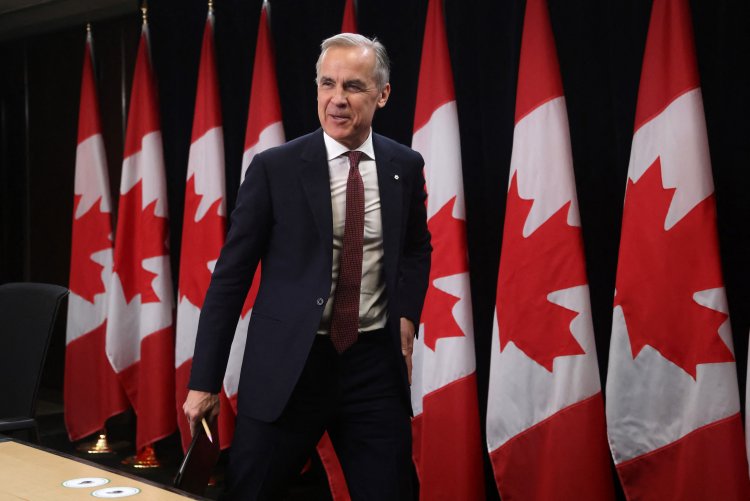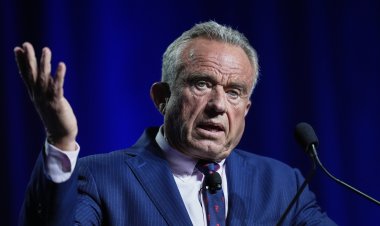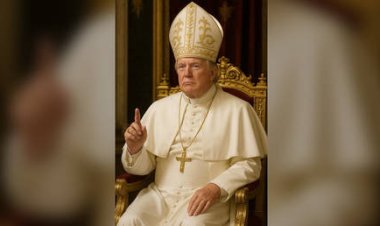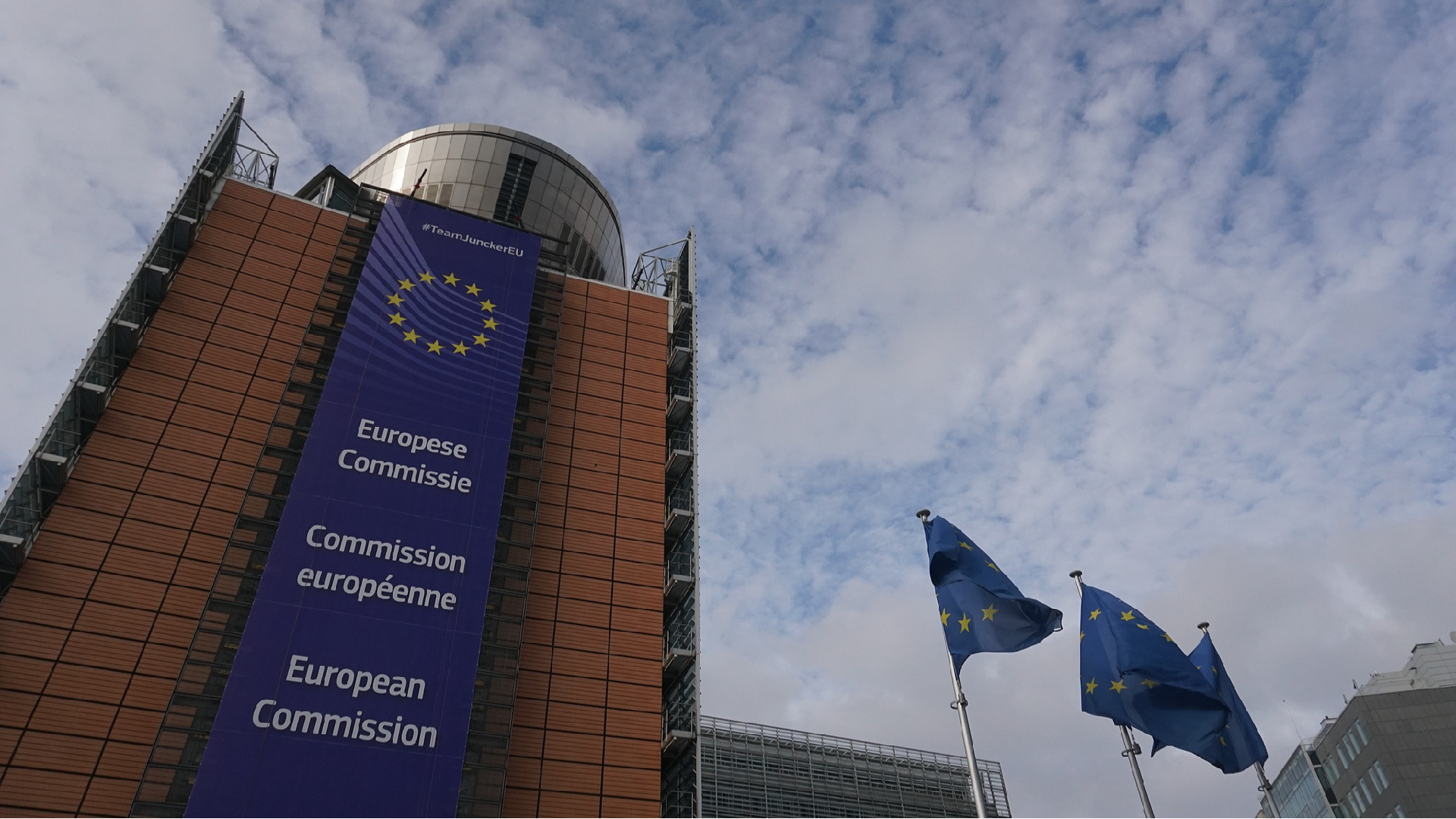Trump Tells Carney: "I’m just not that into you"
He may not be Justin Trudeau, but the new leader of Canada certainly has challenges ahead of him.

“Just another world leader coming to visit. One of many,” remarked a White House official regarding the planned one-on-one meeting with Carney.
“No bells and whistles for the new guy,” another official noted.
“It’s really just to check a box,” a third official added, speaking anonymously to divulge internal planning.
Carney’s visit will follow the typical “working visit” framework, similar to those recently given to leaders like El Salvador’s Nayib Bukele, whose human rights record led him to be sidelined by the previous U.S. administration, as well as Italian Prime Minister Giorgia Meloni and Norwegian Prime Minister Jonas Gahr Støre.
The White House's casual approach to Carney's inaugural trip to the U.S. since his party's electoral victory last week symbolizes the current strained relations between the two nations. It highlights the disparity in stakes for both leaders; Carney has much more to gain from the meeting than Trump, who, according to White House officials, lacks specific objectives for the discussion.
Trump's imposition of significant tariffs on various goods, including vehicles and aluminum, as well as his dismissive remarks characterizing Canada as America’s potential “51st state,” have strained bilateral ties. This rhetoric, coupled with trade tariffs, was pivotal for Carney's Liberal party during the recent Canadian elections. However, such actions have created a rift that needs addressing.
While Carney won’t be troubled by the modest reception, as reported by a trusted source, he is lowering expectations for immediate results, acknowledging that a mere handshake will not resolve complex issues.
“Do not expect white smoke out of that meeting,” he stated during his initial post-election press conference.
Despite the challenges ahead, Carney understands the importance of making a strong impression. He has asserted that Canada’s traditional partnership with the U.S. is “over,” expressing his intention to pursue a new economic and security agreement. He views Tuesday’s meeting as the beginning of that process.
“When I sit down with President Trump, it will be to discuss the future economic and security relationship between two sovereign nations," he articulated at his victory speech in Ottawa.
Canada's economic reliance on the U.S.—approximately 75 percent of Canadian trade is with its southern neighbor—poses a strategic challenge that Carney aims to navigate, primarily by seeking new trade relationships across the Atlantic. However, such changes will take time.
To this end, Carney is keen to expand the meeting agenda to cover more than just tariffs, adopting a comprehensive approach to discussions around security, intelligence sharing, tourism, and education, as indicated by his confidant.
Carney enjoys a distinct advantage over his predecessor, Justin Trudeau, who had a tumultuous relationship with Trump. The dynamic between Trump and Trudeau started positively but deteriorated when Trudeau was overheard criticizing Trump.
“He knows he has the advantage of not being Trudeau, the political wind at his back following the election and support from allies in the UK, France, and elsewhere,” a source commented. “But there is also a sense that this first meeting will likely be the easiest one they have.”
Currently, Carney is largely unknown to Trump.
Brian Clow, Trudeau’s former senior adviser on Canada-U.S. relations, stated that Tuesday's meeting is focused on “restarting, refreshing, re-establishing a constructive working relationship.”
“If it’s 90 minutes — two hours of engagement — that’s a lot of time for relationship building, covering all the policy issues you want to talk about, your view of the world, how we can work together,” Clow explained.
The three White House officials and two others with close ties to the administration emphasized that Trump is still forming his opinions on Carney, having only spoken with him twice by phone, labeling him simply as a “nice guy.”
“He’s coming to see me. I’m not sure what he wants to see me about,” Trump remarked to reporters in the Oval Office on Monday. “But I guess he wants to make a deal.”
Carney’s office notes that the two men previously met at the 2017 G20 summit in Hamburg, during which Trump was president and Carney chaired the Financial Stability Board, although this interaction did not seem memorable to Trump.
The anticipated meeting is expected to be civil, if not particularly warm. Trump is likely to appreciate a leader with an electoral mandate like Carney’s, particularly given the resilience he displayed in confronting U.S. tariffs, according to a close observer of the leaders’ diplomatic styles.
As Carney prepares for his meeting with Trump, he must focus on two essential factors: establishing personal rapport with the president and offering tangible proposals to the United States. Potential offerings could range from enhanced border security to collaboration on critical minerals exploration.
An encouraging aspect for Carney is that the Trump administration is acutely aware of the global economic disruptions caused by the tariffs, including their effect on U.S. bond markets. They recognize that Carney’s visit could influence markets and set expectations for future trade agreements.
Trump’s longstanding complaints about Canada, particularly regarding trade imbalances and defense spending, have been a backdrop for his tariffs. Although he has occasionally hinted at the idea of making Canada the 51st state, he recently softened these claims by suggesting it was “highly unlikely” the U.S. would use military force for such an outcome.
These remarks have fueled anger in Canada and inspired a surge of Canadian nationalism, which Carney capitalized on during his election campaign. After his electoral victory, he warned that the U.S. “wants our land, our resources, our water, our country,” emphasizing, “these are not idle threats. That will never ever happen.”
Some of Trump’s allies believe his “51st state” assertions serve as a distraction from significant issues at hand, perceiving it as an expression of frustration over trade rather than a genuine territorial ambition.
The new U.S. ambassador to Canada, Pete Hoekstra, has refrained from utilizing “51st state” rhetoric, instead focusing on enhancing U.S.-Canada relations through trade, security cooperation, and combatting fentanyl trafficking. He has even discussed the two nations, along with “the great nation of Canada,” working together to bolster NATO.
As for Tuesday’s meeting, two White House allies provided a modest benchmark: If Trump and Carney can avoid a contentious exchange akin to Trump’s confrontation with Ukrainian President Volodymyr Zelenskyy, it will be deemed a success.
“Max goal is an agreement to start negotiating,” said one of the advisors. “Minimum goal is a nice polite meeting.”
Thomas Evans for TROIB News
Find more stories on Business, Economy and Finance in TROIB business












